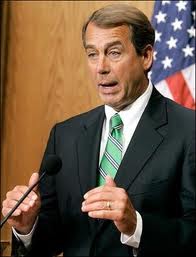Transportation advocates, from both the highway and transit lobbies, are up in arms about a proposed change to House rules governing transportation spending. It would jeopardize dedicated transportation funds by changing the rule requiring that a certain level of highway trust fund money be spent each year. According to a letter [PDF] sent to House leadership last week by 21 organizations including AASHTO, APTA, and the Chamber of Commerce:

Prior to the adoption of this rule in 1998, it was common for Congress to engage in a shell game by reducing Highway Trust Fund spending so that spending elsewhere could be increased. As a result of these abuses, the balances in the trust fund soared, while much-needed infrastructure investment was deferred.
The proposed new language still promises not to spend highway trust fund balances for non-transportation-related purposes. But it eliminates the part where they promise to spend all highway trust fund balances for transportation-related purposes.
Get the subtle difference there? The danger isn’t that the fund will be raided the old-fashioned way, to pay for other projects. The danger is that by keeping money in the fund, rather than spending it out, members of Congress can say they’ve reduced the deficit.
Republicans say that this proposal is just one way they're making good on their promise to reduce the deficit and "start living within our means."
"This proposal simply ensures we won't be required to spend more on transportation projects than we take in," said Brendan Buck, spokesman for the Republican transition team, said in an e-mail to The Hill newspaper. "At the same time, it protects the Highway Trust Fund by ensuring every penny of the gas tax is spent on highway and transit projects, rather than diverted to pay for other items."
But advocates say it could still starve transportation projects of needed funds. “The previous formulation was put there to ensure that it was extremely difficult to cut spending [below] the guaranteed levels in the legislation,” said Jack Basso of AASHTO. Before, any member of Congress could raise a point of order to stop a reduction in spending of the highway trust fund, Basso said. Under the new rule, the only way a member could stop it would be to introduce an amendment and get it passed.
This proposal rubs salt in the wound caused by the absence of an overarching transportation policy, according to the letter to House leadership.
The combination of not having a multi-year reauthorization of the federal highway and public transportation programs – 15 months after the expiration of SAFETEA-LU – and recession-driven state budget challenges has led many states to begin scaling back their transportation programs. The U.S. construction industry is suffering unemployment levels in excess of 18 percent – more than twice the national average. Given these realities, the focus of the 112th Congress should be on enactment of a robust, multi-year reauthorization of the federal surface transportation program that creates jobs and boosts the economy, not on procedural maneuvers that will make it easier to cut highway investment.





